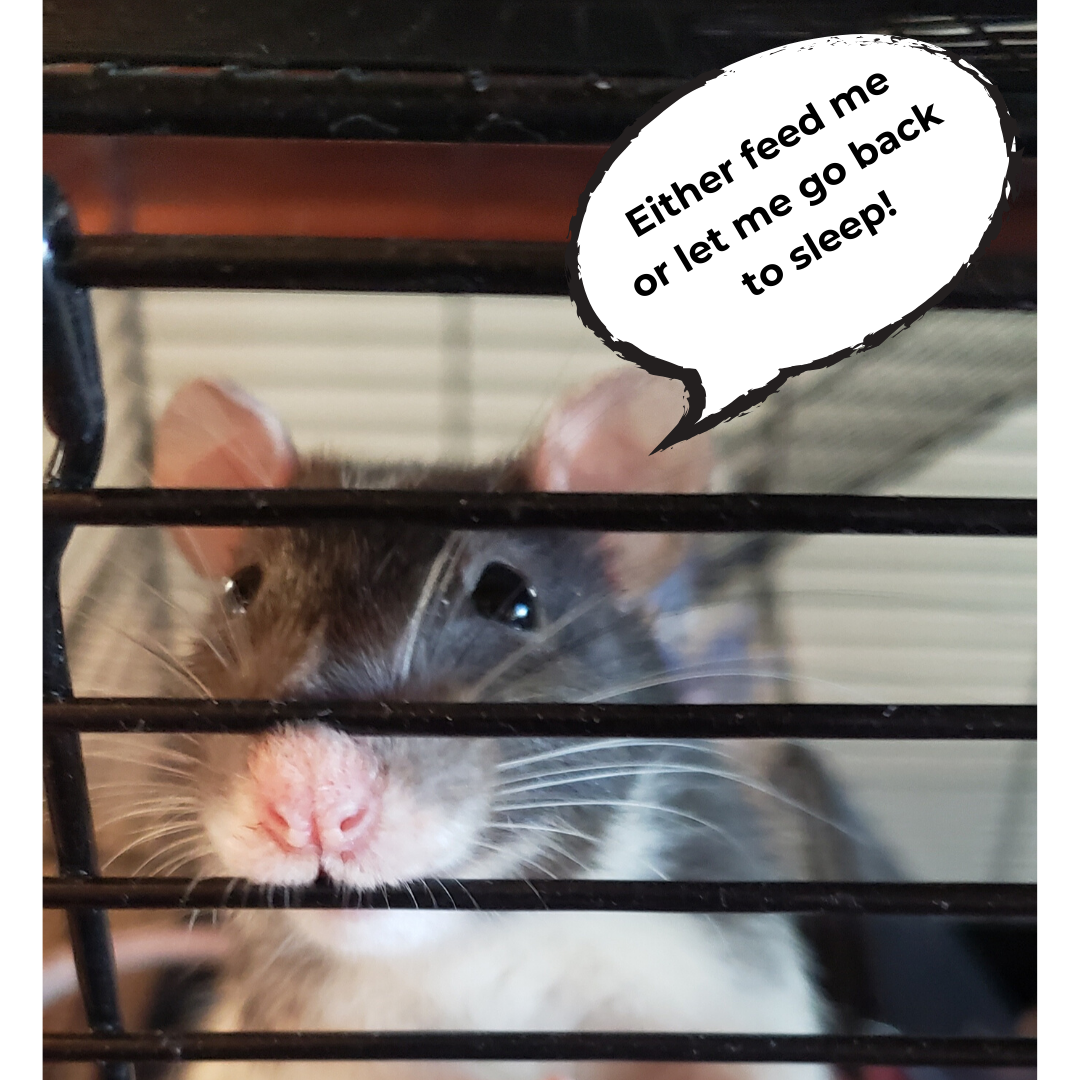We covered why you need to expose yourself to sunlight every day to maintain your synchronization to your circadian rhythm. Exposure to the external light/dark cycle of day/night keeps us in sync on much more than you may think.
How are metabolism and sleep connected?
Our metabolism (how we process energy in and out) is vulnerable to our sleep/wake rhythms. We are wired to eat during the light, while nocturnal creatures are wired to eat at night. (Like our cute, wandered into the yard, didn’t get eaten by the dogs, rat named Lucky, whom I constantly bother during his sleep cycle.) We have clock genes that ensure different processes and functions occur at the optimal time of day in synchronization with other functions.
So, feeding (when we eat) is an output of the clock, but also an input – when we eat can affect our metabolism. “But, Courtney, you say it doesn’t matter how many meals I have daily as long as my caloric intake is consistent!” I do say that sometimes. When you are just starting, we focus on a consistent daily intake but not so much on timing. Calories are still primary, but one may be able to improve one’s metabolism by optimizing one’s feeding timing and daily activities (including sleep) in conjunction with one’s circadian clock.
Just as we feed on the clock, we expend energy according to the clock. We are wired to expend more during the light. Some examples of output processes include basal metabolic rate, exercise expenditure, and basal body temperature. Our body temperatures climb throughout the day and drop throughout the night. We stay still at night and move during the day naturally.
Sleep matters!
There are numerous studies linking lack of quality sleep to a number of disease processes, but scientists are just delving into the correlation vs. causation. Early data suggests that disrupted circadian rhythms do lead to obesity, diabetes, and heart disease. Inflammation factors increase when your sleep is reduced. Hormone, thyroid, and neurotransmitter functions are all affected which can affect your metabolism, mood, and sex drive. Clinical studies have shown in humans that subjects will eat an additional 350-500 calories per day when their circadian rhythms are out of sync! That last one will affect your weight for sure.
Lack of sleep is a stressor, and consequently, your body responds at first by trying to get more sleep. But eventually, chronic sleep loss will cause the body to compensate by up or down-regulating other systems and functions, including your metabolism.
Your sleep quality, timing, and quantity are key to a healthy metabolism and a healthy body weight. And, just because you get 7 hours on the daily doesn’t mean you cannot improve. I trashed my sleep 10 years ago, and I’m still trying to optimize it. As women, we forgo honoring our rhythms for kids, significant others, bosses that don’t give a shit about us, Netflix, and numerous other things. Reclaim it. Optimize it.
Sources:
Quintero JE, Kuhlman SJ, McMahon DG. The biological clock nucleus: a multiphasic oscillator network regulated by light. J Neurosci. 2003;23(22):8070–8076. From https://www.ncbi.nlm.nih.gov/pmc/articles/PMC6740506/
Laposky, Aaron D., Bass, Joseph, Kohsaka, Akira and Turek, Fred W.( 2008), Sleep and circadian rhythms: Key components in the regulation of energy metabolism, J FEBS Letters, 582. From https://febs.onlinelibrary.wiley.com/action/showCitFormats?doi=10.1016%2Fj.febslet.2007.06.079





